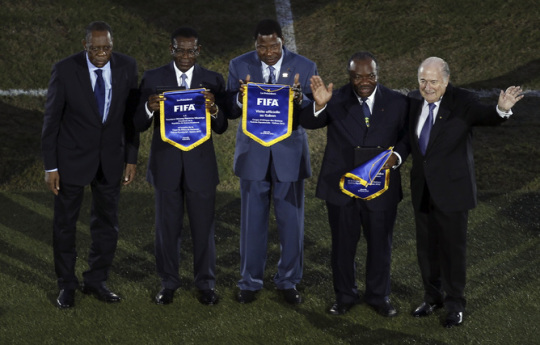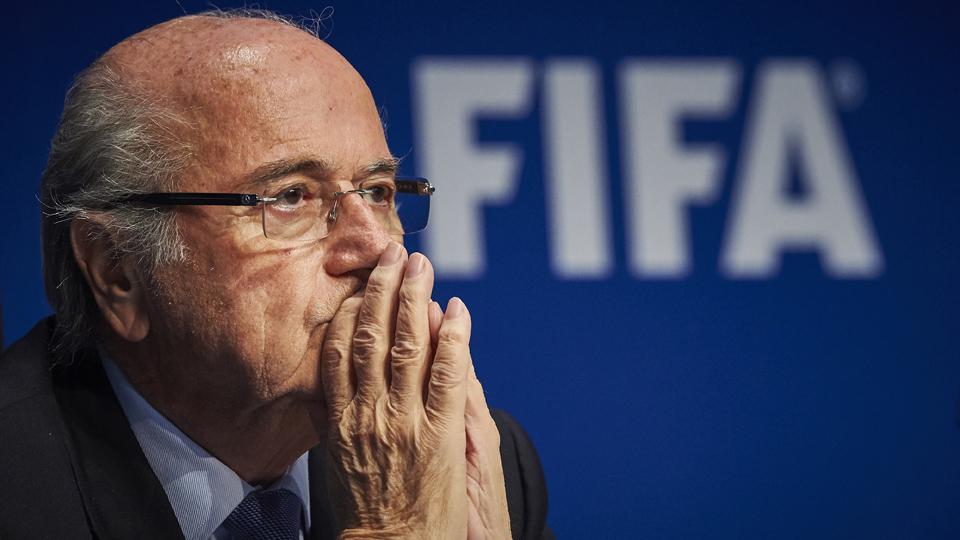Two weeks before the FIFA election to select Sepp Blatter’s successor as president, the Football Scholars Forum, an international group based at Michigan State University, discussed The Ugly Game: The Corruption of FIFA and the Qatari Plot to Buy the World Cup by Heidi Blake and Jonathan Calvert.
Qatar’s successful 2022 World Cup bid and the role of the now-disgraced ex-FIFA ExCo member Mohamed Bin Hammam came under close scrutiny. The authors’ reliance on leaked FIFA electronic files called attention to the challenges and opportunities for scholars working with “big data.” There was discussion about discourses of Western bias and even racism against Africans and Asians (especially Arabs) that are sometimes perceived to be embedded in corruption allegations. Another topic tackled during the event was the intriguing question of whether there should be a universal standard of human rights required for nations to host the World Cup.
The session closed with important contributions related to the upcoming FIFA presidential ballot. Will Sheikh Salman or Gianni Infantino win? And what kinds of reforms might the new leadership deliver? What is the likelihood that any changes introduced will meaningfully transform the structure and governance of the much-maligned world body? In a climate plagued by corruption and cynicism, is there any hope for a better future?
An audio recording of the session is available here.
For more information about the Football Scholars Forum, visit footballscholars.org.
Tag: Sepp Blatter
FIFA, Blatter and Me (Andrew Jennings)
Nearly a decade ago, I devoured English reporter Andrew Jennings’s scathing investigation into “The Secret World of FIFA: Bribes, Vote Rigging and Ticket Scandals.”
Now, in a compelling BBC Panorama documentary, Jennings updates the story by digging deeper into FIFA’s most recent and spiraling crisis. The documentary takes viewers to FIFA headquarters in Zurich, and then to the U.S., Brazil, Trinidad, and South Korea.
One of the most interesting revelations in the BBC piece is that the FBI has in its possession potentially damning written evidence alleging that outgoing FIFA President Sepp Blatter has long been aware of the nature and scope of corruption in world soccer.
Another intriguing insight is that Qatar may have paid $117 million to buy votes and win hosting rights for the 2022 World Cup.
In typically relentless and confrontational fashion, the documentary focuses on Jennings’ probe of the ongoing FBI investigation of corrupt FIFA officials and associates from North America, the Caribbean, and Latin America.
He discusses mounting evidence of kickbacks and bribes paid to acquire TV and sponsorship rights—the charges at the heart of the U.S. Department of Justice’s indictment of high-ranking FIFA men, two of whom have already pleaded guilty to racketeering. Several other FIFA Executive Committee members are in the process of being extradited to the United States.
With the Court of Arbitration for Sport’s decision this week to uphold the 90-day FIFA suspension of both Blatter and Michel Platini (head of European soccer body UEFA), it is no wonder that Jennings believes the scheduled February 2016 FIFA presidential election is “descending into farce.”

On Tuesday, June 2, Sepp Blatter announced his intention to resign as FIFA president just four days after winning reelection to a fifth term — an electoral victory that simply could not have happened without the support of FIFA’s African members.
According to unofficial calculations, the 133 votes secretly cast for Blatter came from Africa (53), Asia (46), and North America (minus the United States) and the Caribbean (34).
Why did Africans unanimously support the leader of a troubled, even loathed, organization which two days earlier witnessed the arrest of seven of its executives in Zurich on US bribery and corruption charges?
As an academic who has been researching, publishing and teaching the history and culture of African football for two decades, I want to offer a possible answer to this challenging question.
Read full text here at The Conversation.
Blatteropoly: The ESPN Documentary

Exquisitely timed for release just ahead of the May 29th FIFA presidential election, ESPN aired an excellent E60 documentary on Sepp Blatter’s governance of world football.
Jeremy Schaap’s piercing investigation deftly uses on-camera interviews with whistleblower Phaedra Almajid, ex-FIFA men like Guido Tognoni, Swiss government officials, and others to probe the murky bid process that granted Qatar hosting rights to the 2022 World Cup. The story digs vigorously into a culture of corruption, fear, intimidation, patronage, and politricks within football’s world body.
Watch the entire show by clicking on each link below:
Part 1: Blatter’s power and Qatar’s World Cup
Part 2: Beginnings of the legend of Blatter
Part 3: Controversy surrounds Blatter’s reign at FIFA
Part 4: Criticism in the UK
Part 5: Challenging Blatter’s power
As an after-viewing treat, I would highly recommend listening to this interview by Sports Illustrated’s Grant Wahl with Jeremy Schaap about making the documentary, lessons learned, and a lot more.
And if you still haven’t had enough, then go ahead and enjoy Last Week Tonight‘s John Oliver lambast the most powerful man in sports! (click here to watch).